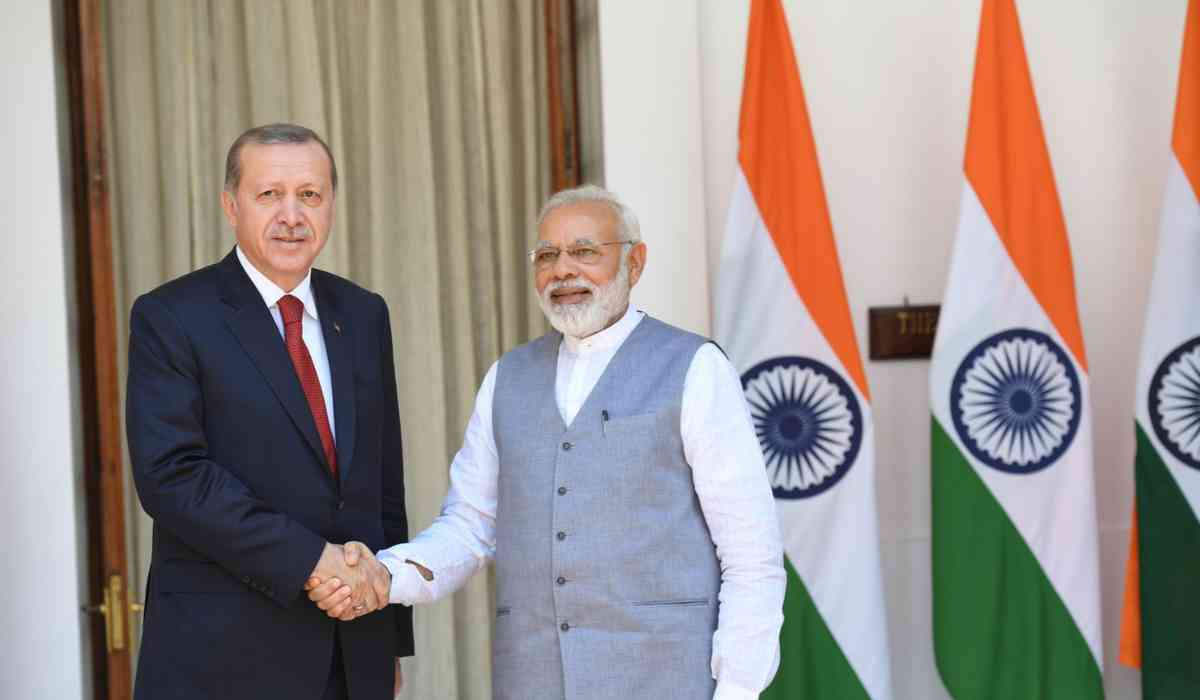India is systematically severing ties with Turkey across a range of sectors including security, aviation, education, trade, and tourism, in response to Ankara’s open support for Pakistan. This multi-pronged diplomatic and economic response was catalyzed by Turkey’s alignment with Pakistan during Operation Sindoor, India’s counter-terror operation in Pakistan and Pakistan-occupied Kashmir (PoK).
Despite India’s humanitarian assistance to Turkey during Operation Dost in the aftermath of a devastating earthquake in February 2023, Ankara’s military and diplomatic overtures towards Islamabad—including the reported provision of unmanned aerial vehicles (UAVs)—have provoked sharp criticism from New Delhi.
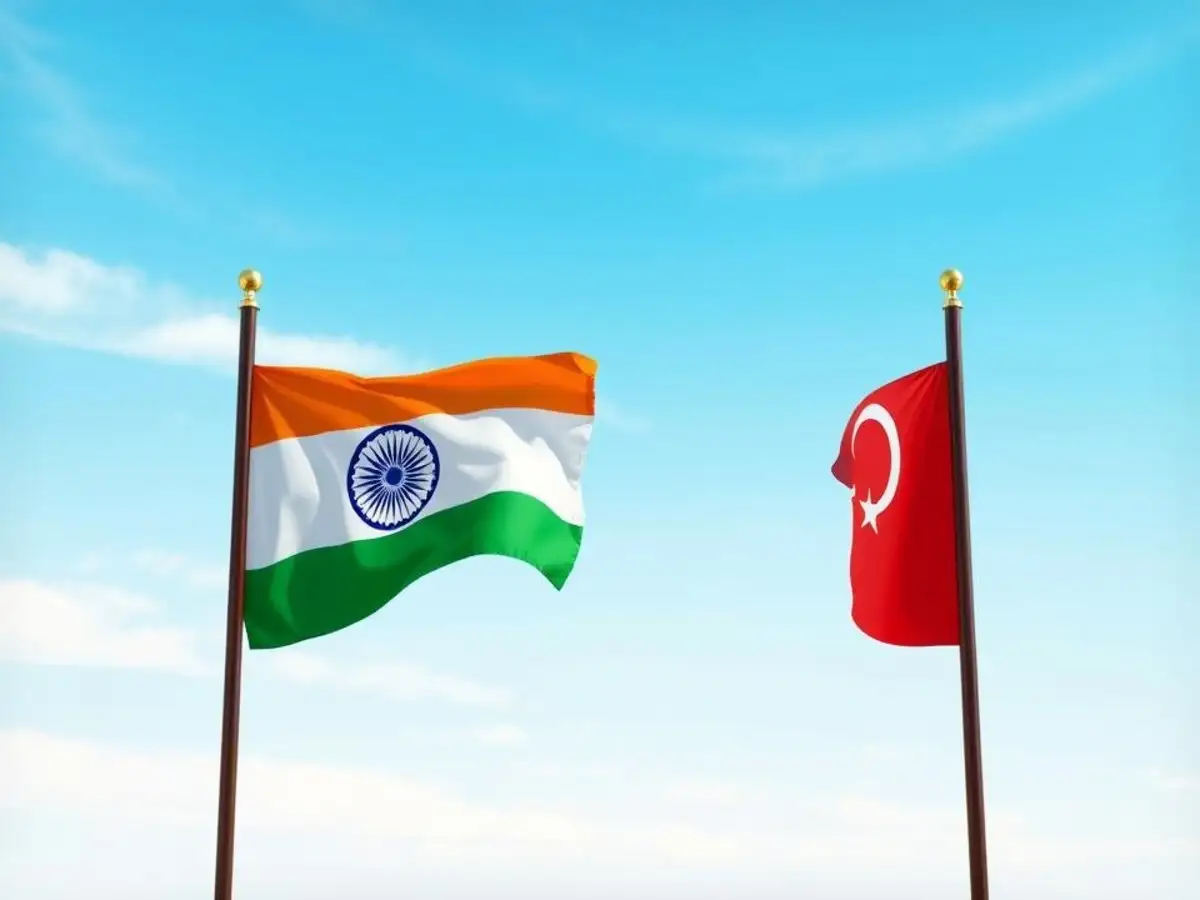
1. Education: Indian Universities Cut Academic Ties with Turkey
India’s academic institutions have responded with urgency to the government’s call for national solidarity:
-
The Association of Indian Universities (AIU) issued a directive to over 1,100 universities urging suspension of academic collaboration with Turkey, Pakistan, and Bangladesh.
-
The AIU letter, titled “Appeal for National Solidarity in Response to Pakistan and Its Allies’ State-Sponsored Terrorism Against India,” condemned anti-India narratives and called for academic unity.
-
Major Indian universities such as Jawaharlal Nehru University (JNU), Jamia Millia Islamia (JMI), and Chhatrapati Shahu Ji Maharaj University (CSJMU) have already canceled Memoranda of Understanding (MoUs) with Turkish institutions.
Notable Withdrawals:
-
JNU suspended its MoU with Inonu University, citing national security. “JNU stands with the Nation. #NationFirst,” wrote the university on X.
-
JMI revoked its agreement with Turkish institutions “with immediate effect.”
-
Maulana Azad National Urdu University (MANUU) ended its association with Yunus Emre Institute, protesting Turkey’s support for Pakistan’s terrorism.
-
Lovely Professional University (LPU) became the first private university to end all ties with institutions in Turkey and Azerbaijan, with Founder Chancellor and Rajya Sabha MP Dr. Ashok Kumar Mittal stating that national integrity must be prioritized over international academic alliances.
-
Delhi University is currently reviewing its Turkish affiliations.
These moves underscore the growing sentiment that education too must reflect national interests, with Indian academia uniting in condemnation of terrorism and support for national security.
2. Aviation: Calls to Boycott Turkish Airlines Intensify
Turkish Airlines in India: Key Figures
-
56 weekly flights to 10 major Indian cities: Ahmedabad, Amritsar, Bengaluru, Chennai, Delhi, Hyderabad, Kochi, Kolkata, Mumbai, and Trichy.
-
Connects Indian passengers to 352 destinations in 131 countries, especially in Europe, the Americas, and Africa.
-
85.2 million passengers globally in 2024, a 2.1% increase from 2023.
-
Generated $18.7 billion in passenger revenue in 2024, a 4% rise from the previous year.
-
In 2024, Turkish Airlines transported 85.2 million passengers—a 2.1% increase from 2023—and generated $18.7 billion in passenger and cargo revenue, with $3.5 billion from Turkish Cargo.
Any large-scale Indian boycott could substantially impact these numbers.
Economic Ramifications of a Boycott:
-
A sustained boycott by Indian passengers could have severe financial consequences, given the airline’s deep integration into India’s travel infrastructure.
-
Turkish Cargo operates out of Delhi and Mumbai International Airports, and in 2024 saw a 35% increase in revenue with a 20.6% rise in cargo volume.
IndiGo’s Response:
IndiGo has defended its codeshare agreement with Turkish Airlines, saying the partnership helps expand its long-haul network to Europe and the U.S. The airline’s long-term strategy includes 40 A321 XLR and 30 A350 aircraft, aimed at achieving self-sufficiency in international operations.
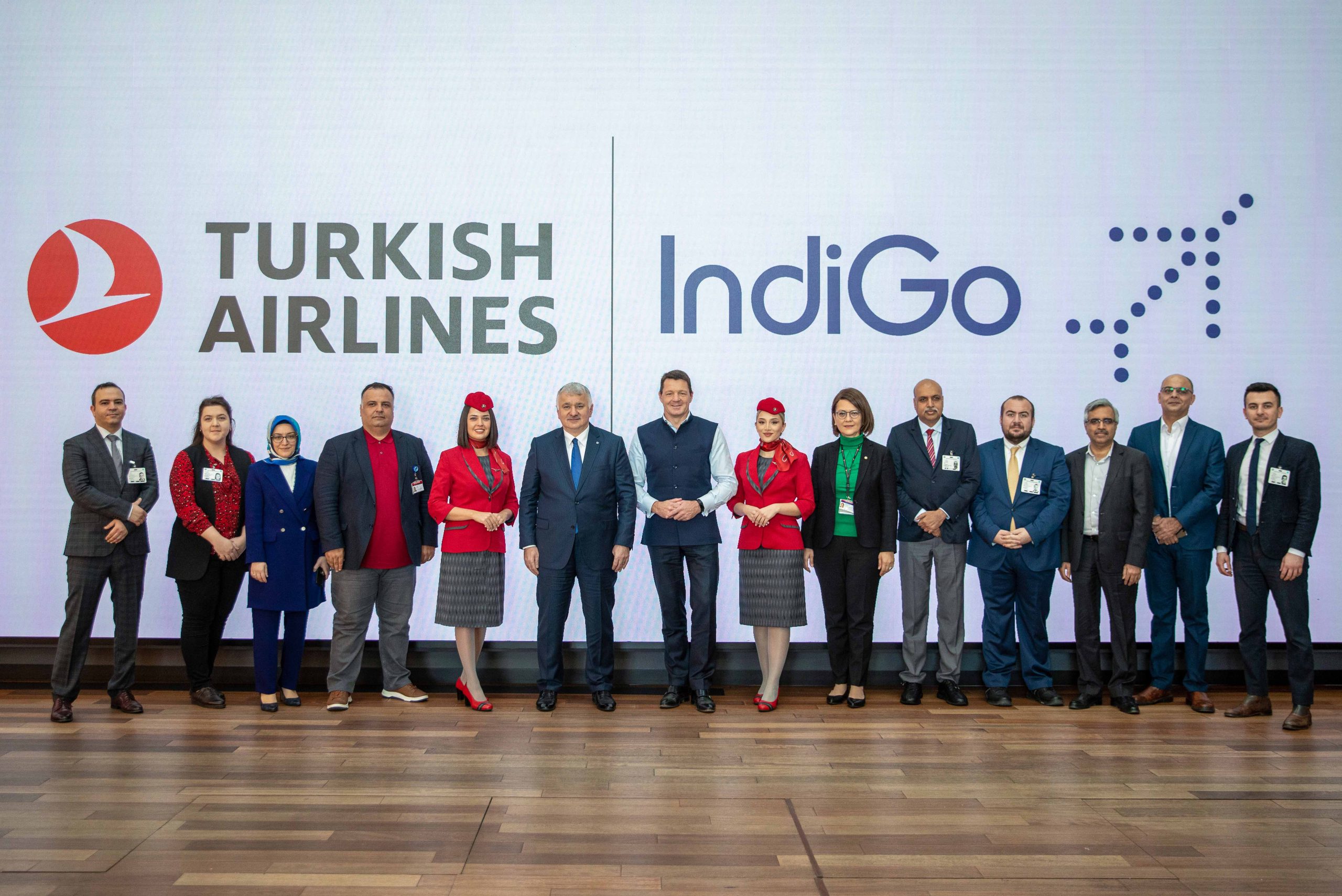
3. Security: Government Revokes Clearance for Turkish Firm
In a major national security decision, the Indian government revoked security clearance for Turkish firm Celebi Security Services, which operates at nine major Indian airports.
Key Airports Affected:
-
Mumbai
-
Delhi
-
Cochin
-
Kannur
-
Bangalore
-
Hyderabad
-
Goa
-
Ahmedabad
-
Chennai
Why Was Celebi’s Clearance Revoked?
The Directorate General of the Bureau of Civil Aviation Security (BCAS) cited national security interests behind the decision. There were also circulating rumors that Sumeyye Erdogan Bayraktar, daughter of Turkish President Recep Tayyip Erdogan, had ownership in the parent firm—claims denied by Celebi.
Celebi’s Clarification:
-
Denied any political affiliations.
-
Claimed majority ownership by international institutional investors across Canada, U.S., U.K., Singapore, UAE, and Western Europe.
-
Turkish ownership confined to founding siblings Can and Canan Celebioglu, each holding 17.5% shares.
-
Asserted full compliance with global corporate governance and neutrality standards.
The move coincided with widespread speculation about the Turkish President’s daughter, Sumeyye Erdogan Bayraktar, allegedly owning a stake in Celebi’s parent company. The company firmly denied the allegation.
“There is no one named Sümeyye owning any shareholding in the parent organization. The company is majority-owned by international institutional investors from Canada, the US, UK, Singapore, UAE, and Western Europe,” Celebi stated.
While disassociating itself from any political affiliations, Celebi emphasized its global ownership structure. Nonetheless, India’s stance remains uncompromising.
4. Political Context: Turkey Sides with Pakistan Post-Operation Sindoor
The breaking point was Turkey's reaction to Operation Sindoor, which targeted terror infrastructure after the Pahalgam terror attack. Turkish President Recep Tayyip Erdogan:
-
Phoned Pakistani PM Shehbaz Sharif to express support.
-
Praised Pakistan’s “calm and restrained” response.
-
Called Pakistan’s position “appropriate” and reaffirmed brotherly ties.
Erdogan also pushed for de-escalation, specifically referencing issues like the Indus Water Treaty, indicating a broader diplomatic push favoring Pakistan.
In response, PM Shehbaz Sharif took to social media to laud his "precious brother," underlining the deepening Turkey-Pakistan alliance—something India now views as hostile to its national interests.
This alignment with Islamabad, particularly in the wake of India’s counter-terror efforts, solidified the Indian government’s decision to distance itself from Ankara.
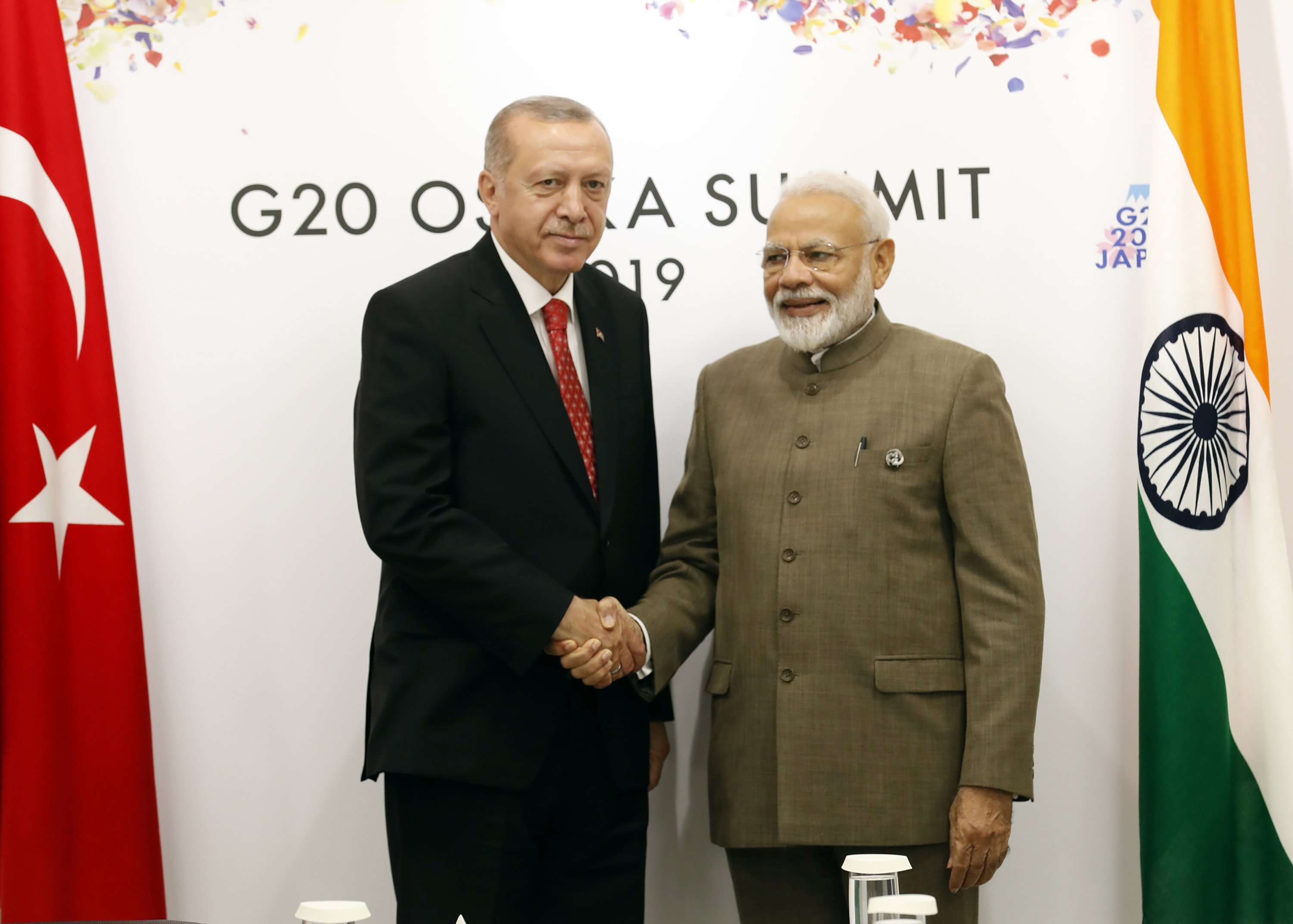
5. Tourism: Public Sentiment and Booking Cancellations Surge
Public backlash against Turkey also impacted the tourism sector:
-
Hashtags like #BoycottTurkey and calls to avoid Turkish destinations gained traction on social media.
-
Prominent voices like Harsh Goenka and actor Rupali Ganguly joined the campaign.
“Indians gave ₹4,000+ crore to Turkey & Azerbaijan last year through tourism... Today, both stand with Pakistan. Please skip these two places. Jai Hind,” Goenka tweeted.
Travel Industry Reaction:
-
EaseMyTrip reported a 22% drop in Turkey-bound bookings.
-
MakeMyTrip saw a 60% decline in new bookings and 250% increase in cancellations for Turkey and Azerbaijan.
-
Travel platforms like EaseMyTrip, Cox & Kings, and Ixigo have suspended or discouraged bookings to Turkey.
-
Indian Association of Tour Operators noted a 15–20% cancellation rate in the wake of the diplomatic fallout.
This indicates a powerful shift in public sentiment and demonstrates how nationalism is influencing consumer choices.
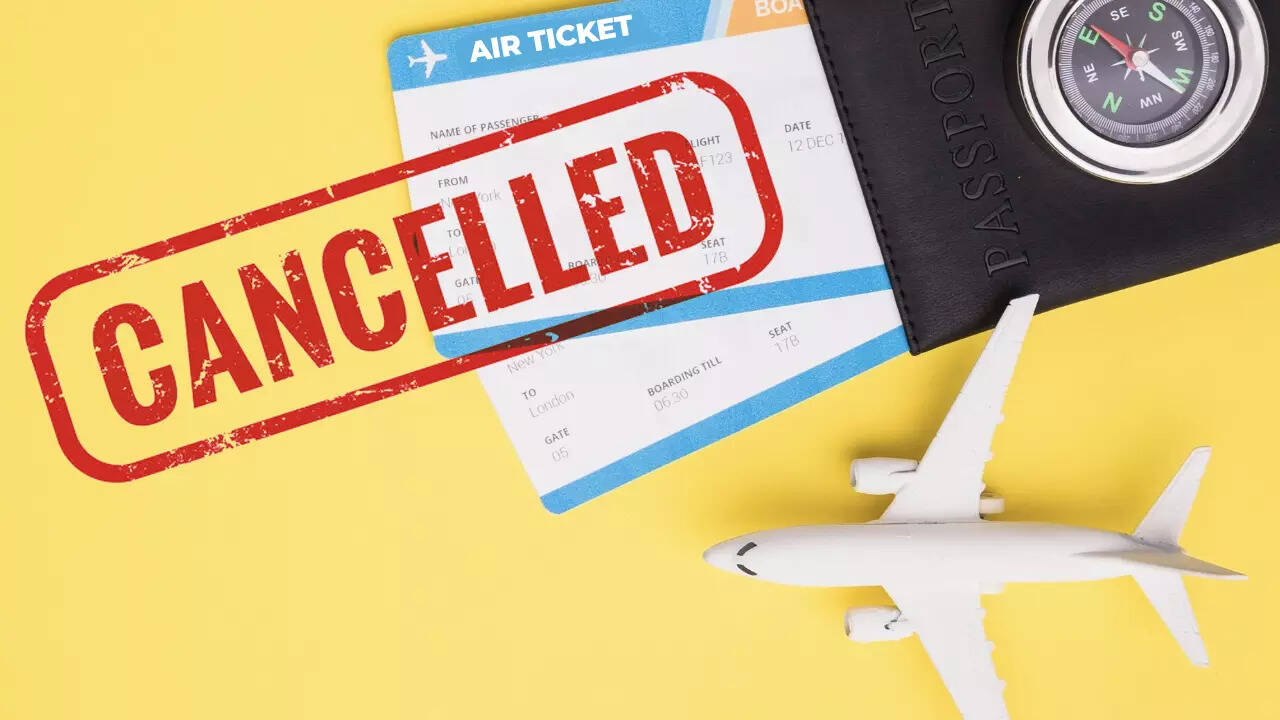
6. Trade: Import Boycotts Gain Momentum
The economic backlash has also spilled over into trade and commerce, especially affecting Turkish marble and apples, both popular imports into India.
Marble Industry:
-
The Udaipur Marble Processors Association called for a complete ban on Turkish marble.
-
President Kapil Surana emphasized: “Business cannot be bigger than the nation.”
Apple Trade:
-
In Pune, traders boycotted Turkish apples, previously valued at ₹1,000–1,200 crore in seasonal revenue.
-
Trader Suyog Zende said the decision was driven by patriotism, choosing instead to source apples from Himachal Pradesh, Uttarakhand, Iran, and others.
India Sends a Strong Message of National Interest and Sovereignty
India’s ongoing disengagement from Turkey is not a knee-jerk reaction but a strategic and multifaceted policy recalibration, rooted in national security concerns, diplomatic priorities, and public sentiment. By cutting ties across education, aviation, security, tourism, and trade, India is sending a clear message: support for state-sponsored terrorism and alignment with Pakistan will not be tolerated.
From university classrooms and airport tarmacs to tourist destinations and trading floors, every arena is now a platform for asserting national sovereignty and strategic autonomy.
With inputs from agencies
Image Source: Multiple agencies
© Copyright 2025. All Rights Reserved Powered by Vygr Media.

